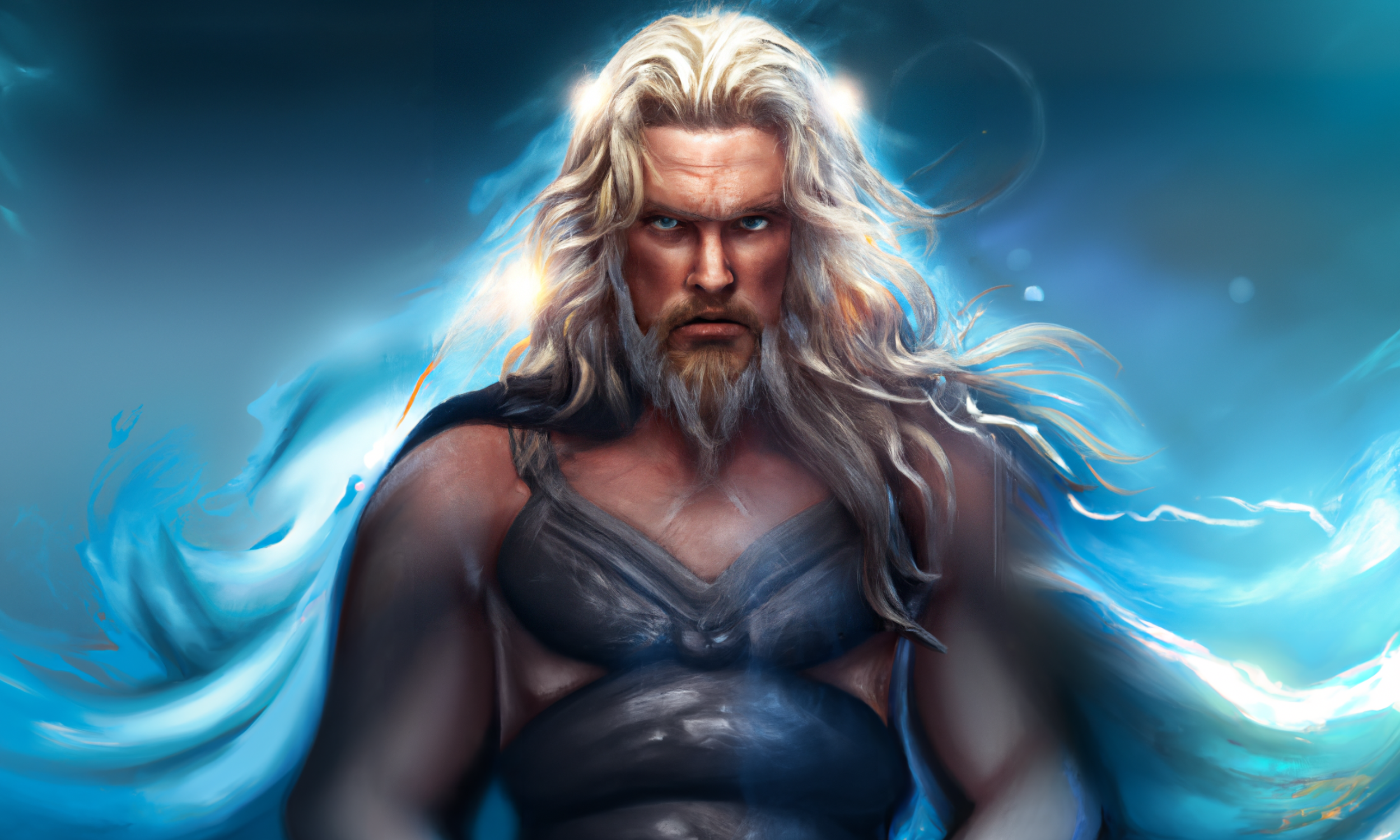FJORGYN
Fjörgyn, the Earthly Matron:
In Norse mythology, Fjörgyn emerges as a goddess intimately tied to the earth and the fertile bounty it provides. Though her mention in the age-old "Völuspá" - a captivating segment of the renowned Poetic Edda - is somewhat fleeting, it nonetheless establishes her as a deity of considerable significance. Fjörgyn is portrayed as the biological mother of the mighty thunder god, Thor, in certain interpretations of the myth, implying her central role in the divine genealogy. Despite her brief mention and less detailed depiction in the extant Norse scriptures, Fjörgyn's significance as an emblem of the earth's nurturing essence and procreative capabilities cannot be overstated. Her name's etymology, deeply rooted in the Old Norse term "fjǫr" which signifies "earth" or "land," further solidifies her links with earthly fecundity. Although the wealth of information concerning Fjörgyn in Norse mythology may seem somewhat sparse, her filial connection to Thor, and her symbolic ties with the earth, unequivocally accentuate her value within the expansive cosmology of the ancient Norse spiritual world. As the fertile soil from which life springs forth, and as the mother of Thor, one of Norse mythology's most revered gods, Fjörgyn occupies a pivotal role.
The intricacies of Norse mythology further present us with Fjörgynn, often perceived as Fjörgyn's male counterpart. The exact nature of their relationship and individual identities, however, remains shrouded in mystery due to the varied interpretations and nuances found within the sources. In certain instances, Fjörgyn and Fjörgynn are portrayed as distinct entities - Fjörgyn personifying the earth and its fertility as a goddess, while Fjörgynn assumes a masculine role, possibly linked to the elements of wind or air. The etymology of their names further compounds this interpretative complexity. As previously mentioned, Fjörgyn's moniker stems from "fjǫr," alluding to her ties with the earth and fertility. Fjörgynn's name, on the other hand, is potentially associated with the Old Norse term "fjǫrgynjar," which might imply a role as "the one who moves across the earth" or "the one who travels over the land," indicative of an elemental connection to wind or air. The limited information and multiple interpretations make it challenging to conclusively decipher Fjörgyn and Fjörgynn's exact nature and their interrelationship. Scholars and mythologists persist in their exploration and study of the Norse texts, hoping to untangle the enigmatic weave of these figures and their roles within the broader tapestry of Norse mythology.
In summarizing, Fjörgyn, the earth-associated, fertility goddess of Norse mythology, plays a less developed yet crucial role in the surviving Norse scriptures. She is celebrated as the mother of Thor, the thunder god, amplifying her importance within the Norse mythological cosmos. Fjörgyn's moniker, derived from the Old Norse term for "earth" or "land," reflects her intimate relationship with the natural world and its life-bearing properties. She personifies the earth's fertile aspect, symbolizing the nurturing and life-propagating forces of nature. Fjörgyn's lineage significance as Thor's mother, a deity renowned for his protective strength, further underscores her cosmic importance. Though the information about Fjörgyn might be sparse, her representation serves to emphasize the ancient Norse reverence for the earth and its life-bestowing powers. As a symbol of life, death, and rebirth's cyclical nature, she serves as a constant reminder of the integral role nature and fertility play in sustaining life and the cosmos. Fjörgyn is a testament to the deep-seated respect for Mother Earth in the Norse belief system, encapsulating the essential life force that pulsates through all living beings. Despite the relative scarcity of narratives and details about Fjörgyn, her presence is a significant reflection of the cyclical patterns of existence, highlighting the intricate balance between creation and destruction, life and death, underscoring the ephemeral yet resilient nature of life.
Other Readings:





